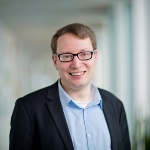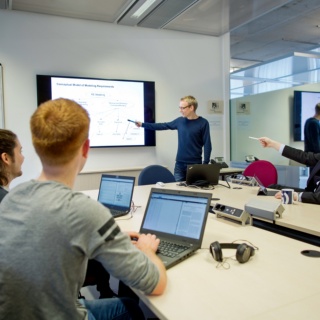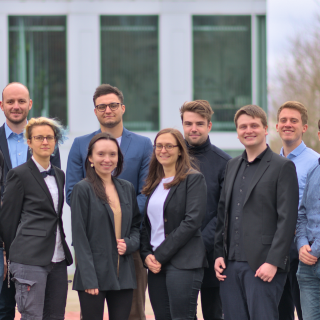General Remarks
As software engineering aims at improving industrial practices for software development, we need to study industrial software development practices and experiment with new methods in an industrial context. Realistic studies can only be conducted in close collaboration with industry partners. Therefore, in general, the Software Quality and Architecture Group welcomes student these in collaboration with our industry partners.
Please familiarize yourself with out general information about student theses before contacting us.
The best method to get a topic in collaboration with industry is via the theses offered by the Software Quality and Architecture Group. For these theses, we have already created a reasonable thesis topic, arranged the topic with our industry partners, and such a theses can be started immediately.
The sub-ideal approach is that you propose a thesis topic in collaboration with a company to us. For this approach, a couple of preconditions have to be met for the proposal to be successful. See the next questions for details.
First, the proposed topic has to match the research interests and expertise of the chair. In case you are unsure about this, see our research statement here.
Second, the proposed topic has to meet the formal requirements of the proposed thesis type. For bachelor theses, the thesis topic must show the potential that you are able to apply your knowledge in a practical setting. For a master thesis, the thesis has to show that you are able to perform small-scale research on your own.
Third, as a thesis is part of your regular study programm, you are not eligible to recieve payment for conducting the thesis.
Forth, there must not be any conflict of interest between the Software Quality and Architecture Group and the compony wrt. the supervised thesis.
Master theses are required to make a research contribution. This means that there has to be a significant amount of knowlegde gained in the thesis, research methods have to be applied systematically (e.g., study methods, Goal-Question-Metric, ...), and the written thesis has to comply to scientific standands and not industry practice. On the opposite, thesis proposals which "just" contain some kind of development tasks will be desk rejected by us.
In a proposal for a master thesis you therefore need to identify the missing pieces of knowledge upfront and argue for this (e.g., provide references to recent scientific paper which name the topic as an open issue), and propose a fitting research method to tackle the problem.
Finally, the company you plan to collaborate with has to agree to these terms and conditions. In particular, they have to accept that the scientifc supervision and evaluation is solely in the responsibility of the Software Quality and Architecture Group. This also implies that you have enough support, supervision, resources and time offered from the company to perfrom the scientifc method thorougly.
In fact, excellent master theses in industry often lead to interesting results which are relevant for the international research community. Hence, it is not unlikely that we will ask you to collaborate and present your thesis results on a scientific paper. This will give you the chance to exhibit at an international conference.
Sure, for example:
- Simon Weiler. Automatic resource scaling in cloud applications - a case study in cooperation with AEB SE, 2021
- Floriment Klinaku, Dominik Bilgery, Steffen Becker. The applicability of Palladio for assessing the quality of cloud-based microservice architectures. In Proceedings of the 13th European Conference on Software Architecture-Volume 2, 2019
- Nikolaus Huber, Steffen Becker, Christoph Rathfelder, Jochen Schweflinghaus, and Ralf Reussner. Performance Modeling in Industry: A Case Study on Storage Virtualization. In ACM/IEEE 32nd International Conference on Software Engineering (ICSE 2010), Software Engineering in Practice Track, Cape Town, South Africa, May 2-8, 2010, pages 1-10. ACM, New York, NY, USA. May 2010, Acceptance Rate (Full Paper): 23% (16/71).
- Oleg Travkin, Markus von Detten, and Steffen Becker. Towards the combination of clustering-based and pattern-based reverse engineering approaches. In Proceedings of the 3rd Workshop of the GI Working Group L2S2 - Design for Future 2011, 2011.

Steffen Becker
Prof. Dr.-Ing.Head of the Software Quality and Architecture Group
[Image: U. Regenscheit / University of Stuttgart]



